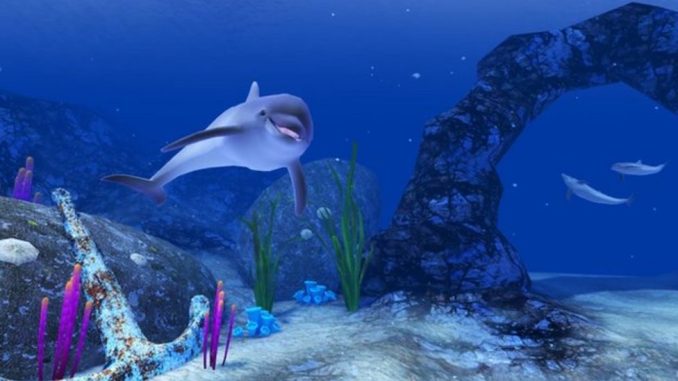
DAHL Shorts sessions this week were: Finding Inspiring and Usable Data Sources (with the Library team), and Mind Mapping and Concept Mapping using MindomoA sophisticated browser-based application for rapidly recording information and ideas (text, links, images, audio, video, files etc.) and organising it into either a spider-diagram layout with a central topic (mind map) or an interconnected web of topics (concept map). Large amounts of information m... More (Robert O’Toole). On Tuesday we also had a great VR Club session, again swimming with sea creatures using the Ocean Rift app from Bangor University.
Initial conversations with DH Certificate participants are confirming that the range of short sessions fits well with their interests. In addition, a session on personal web publishing has been requested. An introduction to WordPress will be added for later in the term. One participant has asked for some specific support with the R programming and data analysis tool. I have connected them with Dr James Tripp from the Technology for Research team. Project ideas are emerging that might use GISA geographic information system (GIS) consists of integrated computer hardware and software that store, manage, analyze, edit, output, and visualize geographic data. Much of this often happens within a spatial database, however, this is not essential to meet t... More, Omeka SOmeka S is a next-generation web publishing platform for institutions interested in connecting digital cultural heritage collections with other resources online. As a web application, it allows users to publish and exhibitcultural heritage objects, and extend its functionality with themes and... More, 3D scanning, SketchfabSketchfab is a 3D modeling platform website to publish, share, discover, buy and sell 3D, VR and AR content. It provides a viewer based on the WebGL and WebXR technologies that allows users to display 3D models on the web, to be viewed on any mo... More, and VR.
Next week the VR sessions will move back to Monday 5-6pm in FAB 1.63 (following a couple of bank holidays). We will be exploring the potential of 3D art creation and how making in VR creates a sense of place and belonging. The DAHL Shorts session will be led by Dr Bryan Brazeau of Liberal Arts, exploring the theory of Digital Humanities, and tools for visualising data – Wednesday 1-2pm in FAB5.01.
DH Certificate participants, don’t forget to get in touch with me in Teams (Robert O’Toole) to arrange a one-to-one consultancy meeting.
Finding Inspiring and Usable Data Sources
A great session from the Library team, with lots of useful advice and links. We will be following up some of these in later sessions (such as the Gale Digital Scholar Lab).
Mind Mapping and Concept Mapping with Mindomo
This proved to be an instant hit. People are familiar with spider diagrames for aiding revision, but this set of tools and techniques goes much further than that. In this session I demonstrate how powerful, but simple, MindomoA sophisticated browser-based application for rapidly recording information and ideas (text, links, images, audio, video, files etc.) and organising it into either a spider-diagram layout with a central topic (mind map) or an interconnected web of topics (concept map). Large amounts of information m... More is for managing research data, doing analysis, and feeding creativity. With applications to all areas of academic work, and beyond into everyday life.
Ocean Rift Swimming with Sea Creatures VR Experience
At the VR Club we explored a relaxing and deeply immersive (in both senses) VR experience created by Dr Llyr ap Cenydd of Bangor University, Wales. The gameplay for Ocean Rift is simple: use propellers to swim under water, looking for sea creatures; interact with the creatures by throwing fish or objects foe them to play with – in the case of the dolphins, hoops for them to swim through. Relaxation and learning are the main aims. There are a range of creatures to choose from, including whales, dolphins, manatee, sharks, and (not for everyone) sea snakes.
The ease with which anyone can use the interface and enjoy this app, regardless of previous experience, illustrates how well VR apps like this create a believable reality. That’s why we often use it as a first experience for new users.
The bahaviour of the animals is quite natural, being controlled by an “AI” algorithm appropriate to each species. Dr Llyr ap Cenydd describes how the app developed out of computer science work:
Ocean Rift started as an experiment to see how far I could take emerging virtual reality technology to make someone feel like they are underwater.. Virtual reality gives you a real sense that there is something in front of you. It genuinely feels like something the size of a 747 is moving next to you.
BBC News, 31st October 2014

Leave a Reply